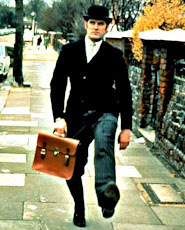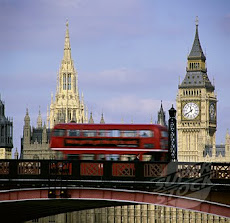Thursday, 25 February 2010
Conlan School
Collegamento al sito web della Conlan School, in italiano. Oltre alle informazioni sulla scuola, sono presenti anche video della città di Abergele e della provincia (county) di Conwy.
Friday, 12 February 2010
Financial Times' comment on 11 Feb celebrations
Financial Times' disenchanted comment South Africa's political situation 20 years after the release of Nelson Mandela and the end of apartheid system.
[...] even fervent loyalists are finding it hard to deny the depth of party divisions, with squabbling between the leadership and the radical Youth League, along with its allies in the Communist party and the trade union movement, becoming an almost daily occurrence. [...]
To complicate matters, Jacob Zuma, the president and the man whose charisma and popularity had brought the various factions together to remove Thabo Mbeki from office 18 months ago, is bedevilled by sexual scandal. [...]
The ANC’s leftwing allies in the Communist party and the Congress of South African Trade Unions want a looser fiscal and monetary stance to create jobs. They criticise the way in which black economic empowerment policies have enriched a small group of businessmen who have political connections.
[...] even fervent loyalists are finding it hard to deny the depth of party divisions, with squabbling between the leadership and the radical Youth League, along with its allies in the Communist party and the trade union movement, becoming an almost daily occurrence. [...]
To complicate matters, Jacob Zuma, the president and the man whose charisma and popularity had brought the various factions together to remove Thabo Mbeki from office 18 months ago, is bedevilled by sexual scandal. [...]
The ANC’s leftwing allies in the Communist party and the Congress of South African Trade Unions want a looser fiscal and monetary stance to create jobs. They criticise the way in which black economic empowerment policies have enriched a small group of businessmen who have political connections.
Nelson Mandela's speech in Durban, Natal
25 February 1990
Friends, comrades, and the people of Natal, I greet you all. I do so in the name of peace, the peace that is so desperately and urgently needed in this region.
In Natal, apartheid is a deadly cancer in our midst, setting house against house, and eating away at the precious ties that bound us together. This strife among ourselves wastes our energy and destroys our unity. My message to those of you involved in this battle of brother against brother is this: take your guns, your knives, and your pangas, and throw them into the sea. Close down the death factories. End this war now! [...]
In 1906, at the time when Bambatha led sections of Africans in a war to destroy the Poll Tax, our brothers who originated from India, led by Mahatma Gandhi, fought against the oppression of the British Government. In 1913, we see Indian workers striking in the sugar-cane plantations and in the coal mines. These actions show the oppressed of South Africa waging a struggle to end exploitation and oppression, mounting an important challenge to the repressive British rule. [...]
We have already waited for our freedom for far too long. We can wait no longer. Join forces, Indians, Coloureds, Africans and freedom-loving Whites, to give apartheid its final blow. In the process, let us develop active democracy. Democratic structures which serve the people must be established in every school, township, village, factory and farm.
Since my release, I have become more convinced than ever that the real makers of history are the ordinary men and women of our country; their participation in every decision about the future is the only guarantee of true democracy and freedom. [...]
Friends, comrades, and the people of Natal, I greet you all. I do so in the name of peace, the peace that is so desperately and urgently needed in this region.
In Natal, apartheid is a deadly cancer in our midst, setting house against house, and eating away at the precious ties that bound us together. This strife among ourselves wastes our energy and destroys our unity. My message to those of you involved in this battle of brother against brother is this: take your guns, your knives, and your pangas, and throw them into the sea. Close down the death factories. End this war now! [...]
In 1906, at the time when Bambatha led sections of Africans in a war to destroy the Poll Tax, our brothers who originated from India, led by Mahatma Gandhi, fought against the oppression of the British Government. In 1913, we see Indian workers striking in the sugar-cane plantations and in the coal mines. These actions show the oppressed of South Africa waging a struggle to end exploitation and oppression, mounting an important challenge to the repressive British rule. [...]
We have already waited for our freedom for far too long. We can wait no longer. Join forces, Indians, Coloureds, Africans and freedom-loving Whites, to give apartheid its final blow. In the process, let us develop active democracy. Democratic structures which serve the people must be established in every school, township, village, factory and farm.
Since my release, I have become more convinced than ever that the real makers of history are the ordinary men and women of our country; their participation in every decision about the future is the only guarantee of true democracy and freedom. [...]
Nelson Mandela's speech after his release
NELSON MANDELA'S ADDRESS TO RALLY IN CAPE TOWN ON HIS RELEASE FROM PRISON
11 February 1990
Friends, comrades and fellow South Africans.
I greet you all in the name of peace, democracy and freedom for all.
I stand here before you not as a prophet but as a humble servant of you, the people. Your tireless and heroic sacrifices have made it possible for me to be here today. I therefore place the remaining years of my life in your hands.[...]
In conclusion I wish to quote my own words during my trial in 1964. They are true today as they were then:
'I have fought against white domination and I have fought against black domination. I have cherished the ideal of a democratic and free society in which all persons live together in harmony and with equal opportunities. It is an ideal which I hope to live for and to achieve. But if needs be, it is an ideal for which I am prepared to die.'
11 February 1990
Friends, comrades and fellow South Africans.
I greet you all in the name of peace, democracy and freedom for all.
I stand here before you not as a prophet but as a humble servant of you, the people. Your tireless and heroic sacrifices have made it possible for me to be here today. I therefore place the remaining years of my life in your hands.[...]
In conclusion I wish to quote my own words during my trial in 1964. They are true today as they were then:
'I have fought against white domination and I have fought against black domination. I have cherished the ideal of a democratic and free society in which all persons live together in harmony and with equal opportunities. It is an ideal which I hope to live for and to achieve. But if needs be, it is an ideal for which I am prepared to die.'
South Africa honours Nelson Mandela's walk to freedom | World news | The Guardian
South Africa honours Nelson Mandela's walk to freedom | World news | The Guardian
Celebrations for Mandela's release on the British press.
Celebrations for Mandela's release on the British press.
Nelson Mandela - 20 years of freedom
Thursday, 4 February 2010
Monday, 1 February 2010
Arts and Crafts Movement
Subscribe to:
Posts (Atom)



